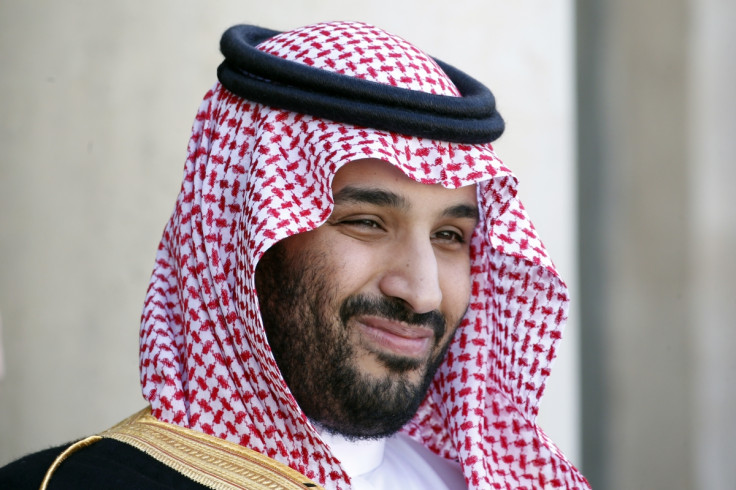Mohammed bin Salman: What does the Saudi Arabian youth think of their pin-up prince?

When Saudi Deputy Crown Prince Mohammed bin Salman assumed his post last year, visitors to his office noticed something unusual. Prince Salman, also appointed the new minister of defence, often came to the office and occasionally attended business meetings without his headgear, the iqbal and lightly starched ghutra that is virtually every professional Saudi's uniform to complement his white thobe.
This suggested an air of informality and subtle disregard for tradition, signalling to the older establishment that Saudi Arabia was about to enter a new era.
The median age of Saudis is 26 years old, and Prince Salman, at 34, embodies the new generation of Saudis who have little patience with institutions that have no transparency and have done little to improve their lives. He is equally comfortable discussing the nuances of social media with young people at a recent conference as he is outlining the kingdom's strategy for a diversified economy with foreign journalists.
In fact, the prince is one of just a few royal family members – the late foreign minister Saud Al-Faisal is the only other that comes to mind – that can pull off with aplomb an interview in English with a Western journalist.
Yet Prince Salman isn't quite a rock star thanks largely to the ingrained scepticism of many Saudis who have seen promises disappear into the government's infamous opaque system in which rules are changed depending on the day of the week. "What is Saudi vision anyway?" one 57 year old complained to me the other day. "It's only a vision. Nothing else."
A 43-year-old Saudi schoolteacher, without elaborating, said he views the prince's proposals as lacking substance. The teacher expressed the common cultural urge in the kingdom to "clip the wings" of a fellow Saudi who has ambitions for success.
But Prince Salman instils more hope than scepticism among the younger generation, because he came along at the right time and he is the right age. With the exception of the first Gulf War, patriotism has never been the strength of Saudi Arabia as a nation. Ask any Saudi their priorities, and they would identify as a Muslim first and Saudi second. And that remains the case today.
When he described Saudi Arabia's reliance on oil revenue as an "addiction", it was language that no Saudi has heard from a government official, but found it refreshing.
The subtle difference is that the new generation of Saudis came of age during the reign of King Abdullah, who implemented incremental social reforms that provided more jobs and a free university education for young men and women. Women, in particular, are excelling in the Western university environment.
It also helped that social media gave young people an opportunity to express themselves more or less freely as long as they kept their criticisms on religion and the royal family to themselves.
Young Saudis were eager for their country to prove that it was a contemporary, forward-thinking nation. But they had few options to identify with a leader who spoke like them and shared the same values. Prince Salman answered that call because he was willing to take risks. It's almost beside the point of whether his vision for Saudi Arabia 2030 succeeds.
Young people are attracted to Prince Salman because of his youth, power and vision – a recipe for success to Saudis painfully familiar with unfulfilled promises. And because of his youth, in a culture that values old age and the wisdom that comes with it, the prince managed the almost impossible task of persuading the Council of Ministers to adopt his vision.
His goals of education reform, increased tourism and building cultural centres to teach Saudis their history fall far outside the comfort zone of many government officials. But the Council of Ministers would not have embraced the prince's future for Saudi Arabia if they perceived him as a political lightweight. His political career started with the Experts Commission under the Council of Ministers and as secretary-general of the Riyadh Competitive Council, which works on economic issues.
Further, most Saudis appreciate that he speaks a language they understand, and who speaks with authority, appears genuine and does not read from a script. He is not reluctant to criticise his own government. When he described Saudi Arabia's reliance on oil revenue as an "addiction", it was language that no Saudi has heard from a government official, but found it refreshing.
As one, Said, told me recently, "Educated Saudis see the big picture and we find it encouraging, even if we happen to fail on some occasions. There are a lot of uneducated pessimists who don't understand the prince's language and they just see another official painting a rosy picture. But the prince is young and has enough time ahead of him to see his vision realised."
Rob L Wagner is an American journalist and former managing editor of the Arab News, a Saudi English-language daily newspaper. He is based in Jeddah, Saudi Arabia.
© Copyright IBTimes 2025. All rights reserved.






















